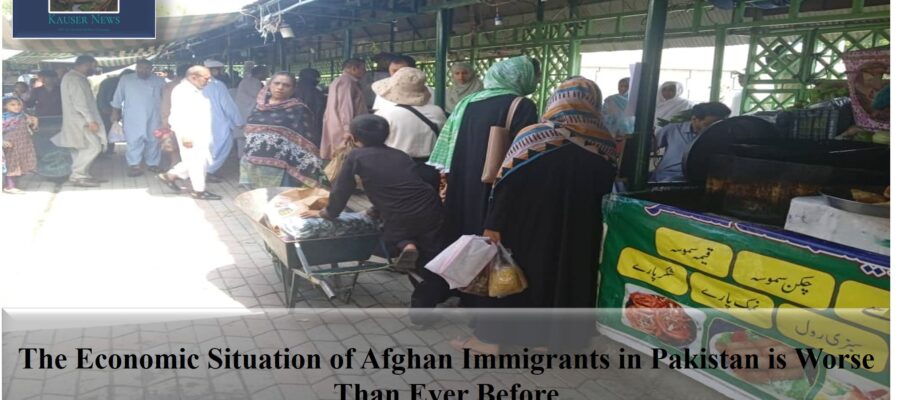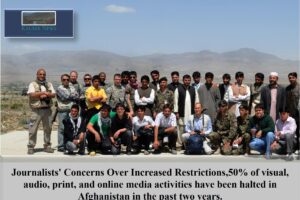During the second phase of Taliban rule in Afghanistan, a new wave of Afghan migration has been observed, particularly to countries like Iran and Pakistan. However, hundreds of thousands of Afghan immigrants have entered Pakistan through legal and illegal routes, and they are now facing severe financial and economic hardships.
According to official statistics, Pakistan is hosting over three million Afghan immigrants, who are living in various cities of the country, both legally and illegally. After decades of sheltering Afghan citizens, Pakistanis, who themselves are going through financial and economic hardships, now view Afghan immigrants as an additional burden on their public resources and economy.
The situation has been further exacerbated by internal political tensions and increasing foreign exchange rates against the Pakistani currency, resulting in a rise in prices within the country.
These Afghan immigrants have fled from the Taliban’s rule for various reasons and have deliberately chosen to settle in cities like Islamabad, Peshawar, Rawalpindi, Karachi, Lahore, and Quetta in Pakistan. They are waiting for the opportunity to move to European and American countries. Many of these immigrants are human rights activists, journalists, women’s rights activists, artists, and cultural figures who have risked everything to reach this country due to fear of reprisals from the Taliban.
These migrants have no job opportunities or employment prospects, and they are also deprived of economic support. After spending two years in Pakistan, this generation is left with no means to speak up and no money to cover their living expenses.
Nargis Tohidi, a women’s rights activist from Takhar province, who currently lives in Islamabad under a pseudonym, shared her story, saying: “For a year and a half, I struggled with numerous economic difficulties and eventually had to sell my jewelry to provide for my family’s basic needs.”
She said: “I have a sick husband and four children (two daughters and two sons), and with tears in my eyes, I had to resort to sewing and laundry work to make ends meet for my family.”
Nargis further explained, “There are also relatives here who cannot afford to take their children to the doctor for treatment or even provide three meals a day for their kids.”
In addition to economic hardships, another major challenge faced by Afghan immigrants is the renewal of residency visas, which is costly and time-consuming. As a result, many of them become targets of Pakistani police due to their expired visas.
Shir Aziz, another immigrant who had been working with Americans in Afghanistan for many years, is now waiting for his SIV case to be addressed in Islamabad, along with his family, and he complains about his dire economic situation.
He said in distress, “Today, we had nothing to eat at home. One of my friends, with whom I walk daily, bought one kilogram of eggplant for me and some bread, and said, ‘At least have this roasted eggplant for today; then, God is merciful for the future.'”
They are all waiting for the U.S. Embassy to move forward with their cases, but like Nargis and Shir Aziz, they are struggling with significant economic hardships and suffering from Pakistan’s poor economic conditions.




